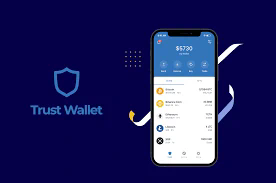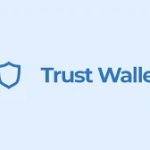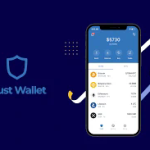Does Trust Wallet Accept PayPal? A Comprehensive Analysis
## Introduction to Trust Wallet
Trust Wallet is a popular mobile cryptocurrency wallet that allows users to store, manage, and exchange various cryptocurrencies securely. It was founded in 2017 and later acquired by Binance, one of the largest cryptocurrency exchanges globally. Designed to facilitate easy access to decentralized applications (dApps) and decentralized finance (DeFi) platforms, Trust Wallet provides a user-friendly interface, making it accessible for both beginners and experienced users. As cryptocurrency adoption rises, many users seek seamless methods to fund their wallets, leading to questions about PayPal’s acceptance.
## Understanding PayPal’s Role in Cryptocurrency
PayPal is a widely recognized payment platform that has made significant strides in the cryptocurrency space. In 2020, the company allowed users to buy, sell, and hold cryptocurrencies directly in their PayPal accounts, including Bitcoin, Ethereum, Litecoin, and Bitcoin Cash. This move marked a pivotal moment for mainstream cryptocurrency acceptance, enabling millions of users to engage with the crypto market easily. However, while PayPal supports cryptocurrency transactions, its interaction with external wallets is limited.
## How Trust Wallet Operates
Trust Wallet functions as a non-custodial wallet, meaning that users have complete control over their private keys and funds. Unlike custodial wallets where a third party manages funds, Trust Wallet ensures that users retain ownership and responsibility for their assets. The wallet supports various token standards, including ERC-20, BEP-2, and BEP-20, enabling users to manage multiple cryptocurrencies within a single application. Trust Wallet’s integration with decentralized exchanges (DEXs) facilitates easy trading and swapping of tokens without needing centralized intermediaries.
## The Question of PayPal Integration
As of now, Trust Wallet does not directly accept PayPal as a funding method for purchasing cryptocurrencies. Users looking to invest in crypto through Trust Wallet must use alternative methods such as bank transfers, credit/debit cards, or other cryptocurrency exchanges. However, many users may wonder how they can use PayPal to indirectly fund their Trust Wallet accounts.
## Using PayPal for Purchasing Cryptocurrencies
To utilize PayPal to fund a Trust Wallet, users can follow these steps:
### Step 1: Purchase Crypto on a Centralized Exchange

Many centralized exchanges, such as Coinbase, Binance, or Kraken, accept PayPal as a payment method. Users can create an account and link their PayPal account to purchase cryptocurrencies. Once the purchase is made, the desired cryptocurrency can be transferred to Trust Wallet.
### Step 2: Transfer Cryptocurrency to Trust Wallet
After obtaining cryptocurrency through a centralized exchange, users can easily transfer their funds to Trust Wallet. The process typically involves copying the wallet address from Trust Wallet and pasting it into the withdrawal section of the exchange. It is essential to double-check the wallet address to avoid any loss of funds.
### Step 3: Confirm the Transfer
Once the transfer is initiated, users will need to wait for the transaction to be confirmed on the blockchain. Depending on network congestion and the chosen cryptocurrency, this could take anywhere from a few minutes to several hours.
### Step 4: Enjoy Full Control
Upon successful transfer, users will have full control over their assets within Trust Wallet, benefiting from the non-custodial nature of the wallet and accessing its suite of features, including staking and DeFi applications.
## Alternatives to PayPal for Funding Trust Wallet
Given that Trust Wallet does not directly accept PayPal, users might consider other funding methods that provide a seamless experience. Here are some alternatives:
### Credit/Debit Cards
Many exchanges allow users to buy cryptocurrencies using credit or debit cards. This method is quick, and the funds usually reflect in the user’s account almost instantly. However, users should be aware of potential fees associated with the transaction.
### Bank Transfers
Bank transfers can be a cost-effective method for larger purchases, often resulting in lower fees compared to credit or debit card transactions. However, bank transfers may take a few days to process, depending on the user’s bank and country.
### Other Payment Platforms
Some platforms, like Cash App and Venmo, allow users to buy Bitcoin and other cryptocurrencies. Users can purchase cryptocurrency on these platforms and then transfer it to their Trust Wallet accounts.
## Analyzing the Pros and Cons of Using PayPal
While using PayPal to purchase cryptocurrencies has its advantages, it also comes with some drawbacks. Understanding these can help users make informed decisions.

### Benefits of Using PayPal
1. **Convenience**: PayPal is a widely used platform, and many users already have accounts set up, making it easy to enter the cryptocurrency space.
2. **Security**: PayPal offers robust security features, such as buyer protection, which can provide peace of mind for users making transactions.
3. **Familiarity**: Many users are accustomed to using PayPal for online transactions, making the transition to crypto smoother.
### Drawbacks of Using PayPal
1. **Limited to Certain Exchanges**: Not all cryptocurrency exchanges accept PayPal, which can limit choices for users looking to purchase specific cryptocurrencies.
2. **Fees**: PayPal typically imposes fees on transactions, which can eat into profits for users looking to buy or sell cryptocurrencies.
3. **Withdrawal Restrictions**: PayPal does not allow users to withdraw cryptocurrencies directly to their wallets, which complicates the process for those wanting to use Trust Wallet.
## The Future of PayPal and Cryptocurrency
As the cryptocurrency landscape continues to evolve, so does the role of platforms like PayPal. The integration of cryptocurrency with traditional payment systems is expected to grow, potentially leading to more inclusive and versatile payment options for users.
### Increased Cryptocurrency Adoption
With more businesses accepting cryptocurrencies and traditional financial institutions exploring blockchain technology, using cryptocurrencies for everyday transactions may become more mainstream. PayPal’s involvement could facilitate this transition, leading to a broader acceptance of cryptocurrencies in various payment scenarios.
### Advancements in Wallet Technology
Innovations in wallet technology may further streamline the process of funding wallets. As companies develop more user-friendly and secure solutions, the ability to integrate various payment methods, including PayPal, into cryptocurrency wallets like Trust Wallet may become feasible.
### Regulatory Considerations
The evolving regulatory landscape surrounding cryptocurrencies will also influence how platforms like PayPal operate. Increased clarity and regulations may encourage more payment providers to support a broader array of cryptocurrencies and blockchain solutions.
## Conclusion
In summary, Trust Wallet does not directly accept PayPal for funding cryptocurrency purchases. However, users can leverage centralized exchanges that allow PayPal transactions to acquire cryptocurrencies, which can then be transferred to Trust Wallet. While PayPal offers convenience and security, it also presents limitations, including fees and withdrawal restrictions. As the cryptocurrency ecosystem continues to develop, it’s essential for users to remain informed about the available options and the evolving relationship between traditional payment platforms and digital assets. Whether you choose to use PayPal or other funding methods, Trust Wallet remains a powerful tool for managing your cryptocurrency portfolio securely.


